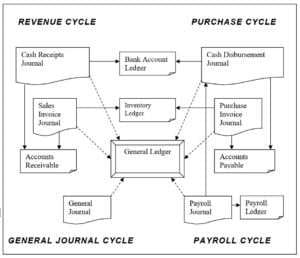Why Accounting is a Great Major?

Is Accounting a Good Major?
Are you interested in becoming an e-commerce accountant? There are many things you do with a degree in accounting, but you might have some questions before you make the decision. In this article, we’ll address some of those commonly asked questions about accounting. Keep reading to learn more.
First of all, What is Accounting?
Accounting is a professional field that involves the measurement, analysis, and reporting of all business and financial transactions. Accounting is a way to analyze the economic activities of individuals, corporations, or business entities. This information can then be reported to investors, stakeholders, and upper management. Areas of accounting can include the following:
- Tax planning & advising
- Auditing financial statements
- Financial planning for businesses or individuals
- Managing accounting systems
There are several types of accounting, which all focus on different aspects of accounting and business. Some examples of these accounting branches are…
- Financial accounting
- Managerial accounting
- Cost accounting
- Internal & external auditing
- Tax accounting
- Accounting information systems (AIS)
- Public accounting
While each branch of accounting is unique, all are required to follow a collection of standards and principles known as Generally Accepted Accounting Principles (GAAP), which is outlined by the U.S. Securities and Exchange Commission.
What Jobs Can You Get with an Accounting Degree?
With an accounting degree, you can work in many different industries for a variety of employers. These can range from accounting firms, nonprofit organizations, the government, or individual businesses. Depending on your level of education, you may have different jobs available to you. For example, with a bachelor’s degree, you can work the following jobs:
- Staff Accountant
- Auditor
- Management Accountant
- Budget Analyst
- Loan Officer
- Financial Analyst
If you continue your education and earn your master’s degree, you will have even more career opportunities available to you. To become a Certified Public Accountant (CPA), you will have to pass an extremely rigorous exam and go under oath to obey a code of ethics. While becoming a CPA is very rewarding, it is not the only career path you can follow. Some other options include:
- Forensic Accountant
- Information Technology Accountant
- Corporate Controller
- CFO (Chief Financial Officer)
What Can I Do With an Accounting Degree Besides Accounting?
If you don’t want to work as an accountant, know that you have other possibilities. For example, professions that involve budget analysis and financial advising do not involve much accounting. However, there are many careers available to accounting majors that do not include any accounting.
Careers in accounting include:
- Medical Biller
- Fraud Investigator
- Sales Representative
- IT Specialist
- Real Estate Agent
Is Accounting a Good Career?
This depends on what you look for in a career. Because accountants serve a crucial role in an organization, this role can be especially rewarding for those who enjoy an important position. Accounting, otherwise, has plenty of room for advancement and professional growth. The field is very stable and ever-growing with great job security. According to U.S. News, the median salary was $73,560 in 2020 and has been gradually trending upwards ever since.
Is Accounting a Hard Major?
Like any major, it can have its complex classes that require more studying and after-class tutoring, while also having classes that are relatively easy and intuitive (especially if you are more financially savvy.) Depending on the level of education you decide to pursue will also impact how difficult earning an accounting degree can be. Nonetheless, the accounting curriculum can be challenging as it requires students to intensively study the material in order to pass exams.
Accounting students are required to pass their general education courses, which include basic classes like introductory math, science, social studies, and writing classes, in addition to other electives. Once they’ve passed the preliminary courses, they will have to take a deep dive into various accounting courses, which include 120 credit hours in the following subjects:
- Financial accounting
- Managerial accounting
- Accounting software
- Auditing
- Business law
- Economics
- Statistics
- Income Tax for individuals and businesses
What Kind of Math is Used in Accounting?
Contrary to popular belief, you don’t have to be a math wiz to excel in accounting. Accounting, more than bookkeeping requires a thorough understanding of basic math, of course, but otherwise may not even require you to take any math classes past basic algebra. In most cases, probability and statistics will be the main math courses that accounting majors will have to take.
Do Accounting Majors Have to Write Papers?
While accounting students will have to write a few papers to satisfy their general education requirements, the overall accounting curriculum typically does not require students to write many papers. However, this will be entirely dependent on the professor, as many will assign group assignments that have a written component.
Otherwise, students will be asked to use concise and clear language in their reports and will be graded on their ability to do so. Although, if you decide to pursue graduate studies, you will be required to write a very long and intense thesis.
Does it Matter What University You Go To For Accounting?
Because accounting is a competitive business industry, the prestige of your university does matter to some degree. You can still find a very rewarding career in accounting without a degree from Harvard, but a degree from Harvard may help you land a better job freshly out of college. That being said, after you graduate and land your first job, your career performance will matter more than your education credentials.
Accounting is a Great Major
To make sure it’s a good fit, it is important to do some research before pursuing a degree in accounting. Connecting with other accountants through your university or via professional networking platforms will help you get the inside scoop of the daily responsibilities and overall satisfaction of someone in this field. It is worth investing your time into the preliminary research and networking, as this can save you a lot of time, money, and energy should you decide that accounting is not a good fit for you.















Leave a Reply